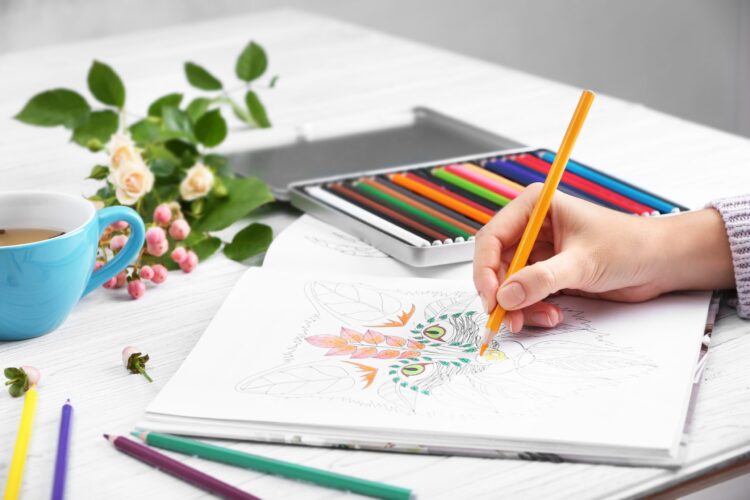When a person is struggling, sometimes it is helpful to be able to use more than words to explain how they are feeling. This is particularly true for those who were very young when they experienced a painful event or who are suffering from a condition that has made verbal language more difficult for them to access. Creative expression can sometimes make it easier to say the things that they lack the words to express because it taps into a different part of the brain. Art therapy is one way that this can be accomplished and we are proud to offer this treatment option at Carolina Dunes Behavioral Health in Leland, North Carolina.
What is Art Therapy?
Art therapy is a mental health occupation that has been around since the 1940s and has been growing in popularity since the 1970s. A trained professional with a master’s degree or higher in art therapy uses applied psychological theory and the process of making art to support the mental health of an individual or group. Art therapy can take many forms, including:
- Drawing
- Sculpture
- Collage
- Painting
- Theater
- Dance
- Music
While the patient is creating their art, the art therapist primarily observes and does not ask a lot of questions. When the art is complete, they will have a conversation with the patient to process how they were feeling while making the art and anything of interest that the art therapist observed.
Can I Do Art Therapy On My Own?
It can be fun and relaxing to do some of the activities that are offered in art therapy sessions, and your mental health may even benefit from time you set aside in your schedule to paint, draw, sculpt, dance, etc. These can be excellent coping skills, but it is not considered art therapy unless you are doing these activities under the guidance of a licensed art therapist. This also means that when a therapist who is not licensed to provide art therapy uses artistic expression with patients in therapy sessions, it is not considered art therapy.
What are the Benefits of Art Therapy?
Art therapy can do a lot of the same things as conventional talk therapy but may be more effective for people who are not as comfortable talking about their feelings. It can make it easier for the person to begin speaking about a painful experience. In addition, it can:
- Support personal and relationship growth
- Improve cognitive functioning
- Increase emotional resilience
- Improve self-esteem
- Enhance self-awareness
- Assist with conflict resolution
Many patients also like this treatment option because it does not involve medications and does not have much potential for bad side effects.
Where are Art Therapy Services Provided?
Art therapy can occur in a variety of settings, such as:
- Hospitals
- Schools
- Community clinics
- Crisis centers
- Senior communities
- Veterans’ clinics
What is Required of Art Therapy Patients?
A lot of people think that they cannot participate in art therapy if they don’t see themselves as especially creative or artistic or if they have no prior experience making art, but that is not the case. All that is required is the participant’s willingness to participate and take direction from the art therapist. Unlike an art class, which may focus on technique and the final product, art therapy is more focused on the process and the healing.
Many people think of art therapy as being for children, but it can be utilized with patients of any age. It is especially effective with elderly adults who are experiencing dementia and may be better able to access art than words to express themselves and with patients who have suffered an emotional trauma, who may find it painful to discuss what happened to them.
What Conditions Can Art Therapy Treat?
Art therapy is often used to complement talk therapy modalities like cognitive behavioral therapy (CBT) and eye movement desensitization and reprocessing (EMDR) therapy. This can make it difficult to study, as the results it provides may also sometimes be attributed to other mental health supports the patients are receiving. Studies have found art therapy to be helpful for people who were already receiving other forms of treatment for:
- Depression
- Anxiety
- Schizophrenia
- Dementia
- PTSD
- Pain and mental health effects from physical health conditions
These are some of the same conditions we treat at Carolina Dunes Behavioral Health. Please contact us if you would like to learn more about the services we offer or the people we help.





